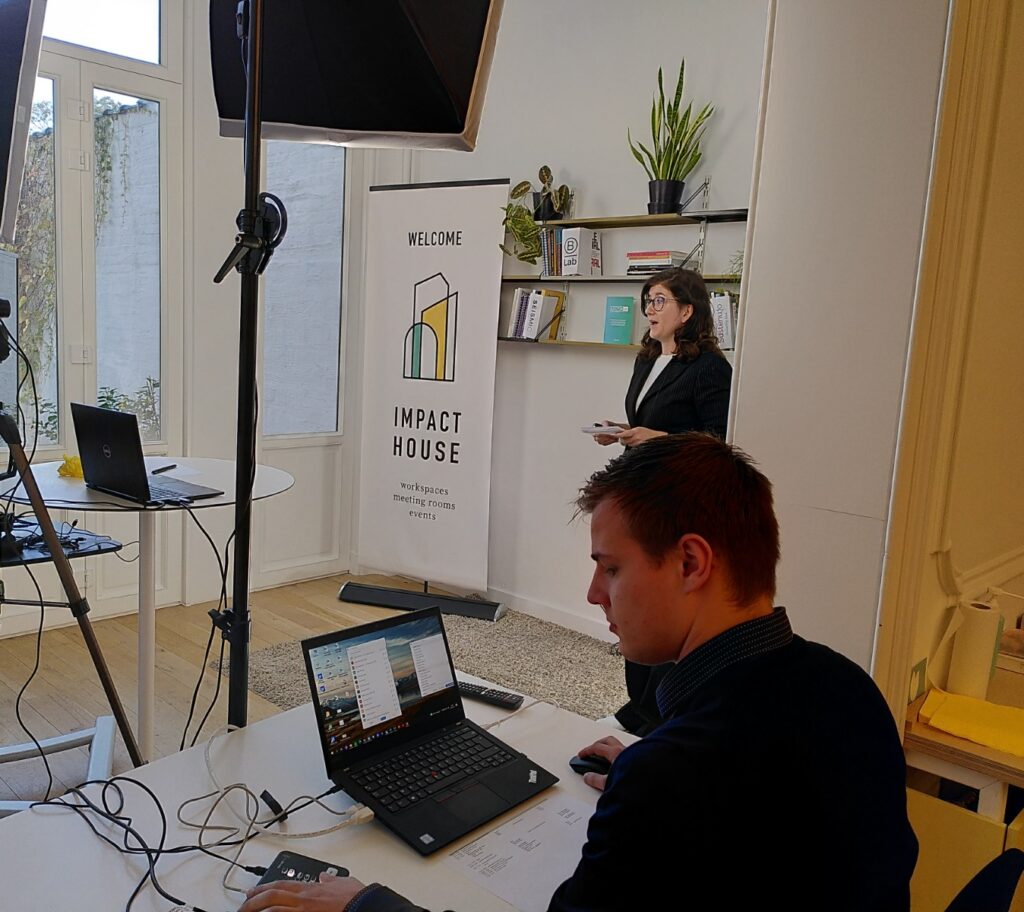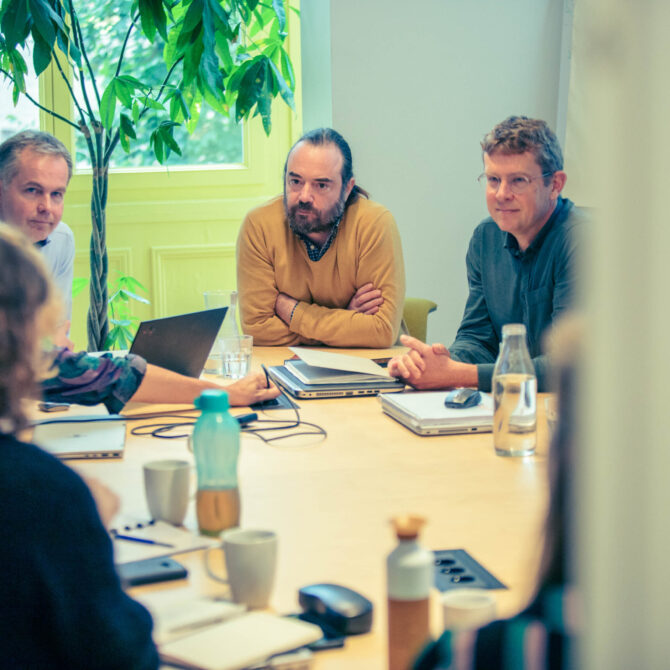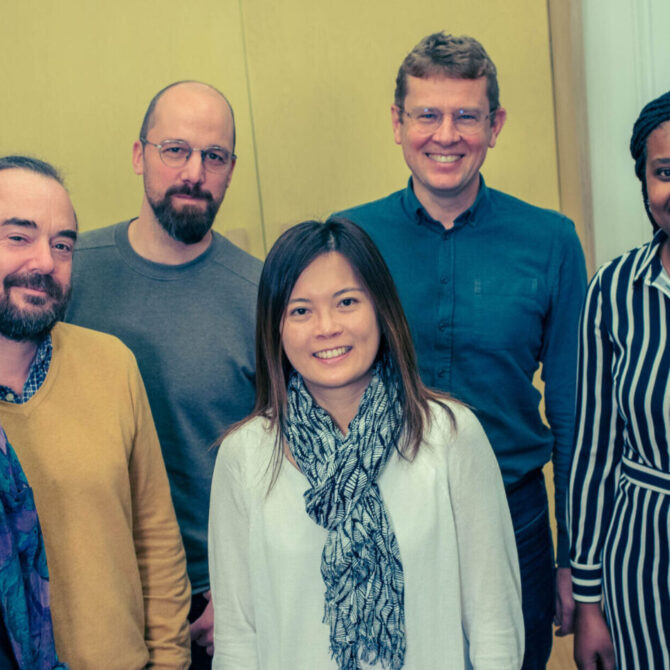There is a wealth of sustainable product certifications available on the market today. While it may feel overwhelming at times, most labels have a specific purpose within a certain range of products. There is a whole different set of requirements for, let’s say, fishing sustainably compared to trading bananas fairly. It only makes sense to give these products different sustainability labels.
But while there are many certifications at the product level, the situation is different on a corporate level. Certifications that validate the sustainability direction and performance of companies as a whole are much less widespread.
B Corp™ offers a solid framework for commercial companies to look at their sustainability performance in a holistic way. It includes both a company’s business model and its impacts on operations, supply chain, employees, and customers. And it serves as a driver for internal governance.
What is B Corp?
B Corp is short for “Benefit for all” Corporation. Created in 2006, the label has gained worldwide traction over the past years. Today, we can even speak about a B Corp movement, with over 4,800 Certified B Corporations in more than 75 countries.
B Corp stands for a business integrating purpose with profit.
B Lab™, the initiating and certifying entity, defines B Corporations as businesses “that meet the highest standards of verified social and environmental performance, public transparency, and legal accountability to balance profit and purpose.”
Rather than solely focusing on generating revenue, B Corporations also work on creating positive impact for their employees, customers, community, and the planet. They weave economic, social, and environmental prosperity in their business strategy and operations.
Who is it for?
B Corp is an international recognition for commercial organisations that use their business and activities to generate positive impacts. It is regardless of size, form, location, or industry.
Any commercial organisation that is or wants to become a purpose-driven business will benefit from the B Corp certification process.
There are two starting conditions:
- The willingness to pursue a purpose that goes beyond economic profit.
- The commitment to make sustainably impactful decisions mandatory for management.
By committing to pursuing social and environmental goals on top of profitability, shareholders aim for a long-term vision while protecting existing corporate values and company legacy.
However, not only large, established corporations can become a B Corp. The majority of certified B Corps today are small businesses. Start-ups can also join the movement.
Multinationals are showing increased interest and engagement to join the global B Economy. The reason for this is that the B Corp standard is the most authentic, high-demanding, global standard when it comes to sustainability.
How it works: The B Impact Assessment
The B Corp certification proves that companies meet the highest standards of verified social and environmental performance, as outlined in the B Impact Assessment.
The B Impact Assessment, or BIA, is a free management tool that provides a holistic framework of sustainability indicators to measure and manage impact performance.
While filling out the BIA, companies strive to meet high standards in five key areas:
- Environment
- Community
- Employees
- Customers
- Governance
What differentiates the BIA is its focus on two distinct modules:
- The operational impact
- The impact business model
While the first module looks at the day-to-day impact of running a business, the second assesses the design of a company. It looks at an organisation’s purpose and activities, and evaluates how these create positive benefits for one or more of its stakeholders.
By going through the Assessment, companies start to reflect more thoroughly about the ways in which they apply sustainability to their activities and organisational set-up. As such, the BIA is a tool for internal reflection, that at the same time provides a wealth of best practises and concrete action items for implementation.
The B Corp Certification
By filling out the BIA indicators, a company scores points up to a maximum of 200. Once a company reaches 80 points, it can apply for the B Corp Certification.
However, before doing so, a company must fill out an additional disclosure questionnaire that assesses risks related to sensitive topics. The questionnaire identifies delicate industries, malpractices, fines, or sanctions that are not explicitly called out in the rest of the assessment. Think of tax avoidance practices, child labour, or suppliers from conflict zones…
The certification process is then carried out and audited by the non-profit organisation B Lab.
Companies must obtain a minimum of 80 points on the BIA to be certifiable.
It’s important to consider that the B Corp Certification is an ambitious certificate. Companies that haven’t yet undertaken serious sustainable efforts may be surprised by a low first result. The strength of the BIA here is that it guides and motivates those organisations to take appropriate action.
In any case, the B Corp Certification is not and should not be the end goal of a company’s B Corp journey. While organisations apply the B Impact Assessment as a management tool to structure and steer sustainability efforts, the Certification should only be a starting point. From there, it’s important to keep improving, take direct action, and use business as a source for good.
B leaders show the way
Managing the B Corp certification process and completion of a BIA can seem a daunting task. It requires specific skills to understand the method for measuring sustainability, and dedication to rally the right people behind one structured sustainability approach.
The B Leader programme is a training and community programme that teaches professionals the necessary knowledge to bring an organisation up to the level of a B Corp certification.

The B Leader programme has been successfully organised multiple times in locations such as Geneva, London, the United States, and Brussels. Sustenuto has co-organised the B Leader Programme from Brussels since 2018.
The third Benelux B Leaders Training, held in October 2021, virtually brought together 56 professionals from over 15 different countries. Sustenuto and its partners trained them to support companies in their transition to a B Corporation.
In the above picture, our colleagues Virginie Hoet en Pieter Beerten are hosting one of the sessions during the Benelux B Leaders Training in October 2021.
Becoming a source for good
The B Corp Certification is a powerful recognition of the overall efforts by companies to positively impact society and the planet. Through filling out the B Impact Assessment, they can measure, manage, and improve their impact performance in five key areas.
The BIA goes beyond the certification of companies that already have sustainability practises in place. Organisations that have yet to take their first steps into sustainable development can benefit from the BIA as a powerful tool to get started.



